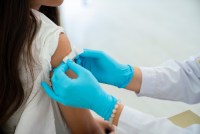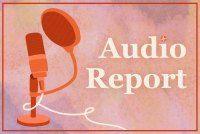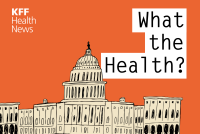Latest Morning Briefing Stories
She Paid Her Husband’s Hospital Bill. A Year After His Death, They Wanted More Money.
A widow encountered a perplexing reality in medical billing: Providers can come after patients to collect well after a bill has been paid.
Timing and Cost of New Vaccines Vary by Virus and Health Insurance Status
Flu. Covid. RSV. When and how to get vaccinated against them can be confusing. Here are some of the most important things to know.
After Backlash, Feds Cancel Plan That Risked Limiting Breast Reconstruction Options
The Centers for Medicare & Medicaid Services backed off from a plan that could have curtailed access to a type of reconstructive surgery known as DIEP flap. Breast cancer patient advocates are relieved.
Doctors and Patients Try to Shame Insurers Online to Reverse Prior Authorization Denials
Prior authorization is a common tool used by health insurers for many tests, procedures, and prescriptions. Frustrated by the process, patients and doctors have turned to social media to publicly shame insurance companies and elevate their denials for further review.
A New Medicare Proposal Would Cover Training for Family Caregivers
The federal government is proposing having Medicare pay professionals to train family caregivers how to perform tasks like bathing and dressing their loved ones, and properly use medical equipment.
Journalists Talk Madera Hospital Bankruptcy Woes and Savings for Covered California Enrollees
California Healthline senior correspondent Bernard J. Wolfson and Fresno Bee reporter Melissa Montalvo discuss community efforts to save a bankrupt hospital from liquidation. California Healthline contributing radio correspondent Stephanie O’Neill Patison reports how lawmakers won additional Covered California subsidies.
KFF Health News' 'What the Health?': On Abortion Rights, Ohio Is the New Kansas
Nearly a year to the day after Kansas voters surprised the nation by defeating an anti-abortion ballot question, Ohio voters defeated a similar, if cagier, effort to limit access in that state. This week, they rejected an effort to raise the threshold for approval of future ballot measures from a simple majority, which would have made it harder to protect abortion access with yet another ballot question come November. Meanwhile, the number of Americans without health insurance has dropped to an all-time low, though few noticed. Joanne Kenen of the Johns Hopkins Bloomberg School of Public Health and Politico, Rachel Roubein of The Washington Post, and Emmarie Huetteman of KFF Health News join KFF Health News’ chief Washington correspondent, Julie Rovner, to discuss these issues and more. Also this week, Rovner interviews Kate McEvoy, executive director of the National Association of Medicaid Directors, about how the “Medicaid unwinding” is going, as millions have their eligibility for coverage rechecked.
Lost Medicaid Health Coverage? Here’s What You Need to Know
Patient advocates are tackling the “overwhelming task” of connecting people with health insurance as millions lose coverage due to the end of pandemic protections on Medicaid eligibility.
His Anesthesia Provider Billed Medicare Late. He Got Sent to Collections for the $3,000 Tab.
Medicare was supposed to cover the entire cost of his procedure. But after the anesthesia provider failed to file its claims in a timely manner, it billed the patient instead.
KFF Health News' 'What the Health?': Another Try for Mental Health ‘Parity’
President Joe Biden is kicking off his reelection campaign in part by trying to finish a decades-long effort to establish parity in insurance benefits between mental and physical health. Meanwhile, House Republicans are working to add abortion and other contentious amendments to must-pass spending bills. Joanne Kenen of the Johns Hopkins Bloomberg School of Public Health and Politico, Anna Edney of Bloomberg, and Sarah Karlin-Smith of the Pink Sheet join KFF Health News’ chief Washington correspondent, Julie Rovner, to discuss these issues and more. Also this week, Rovner interviews KFF Health News’ Céline Gounder about her podcast “Epidemic.” The new season focuses on the successful public health effort to eradicate smallpox.













